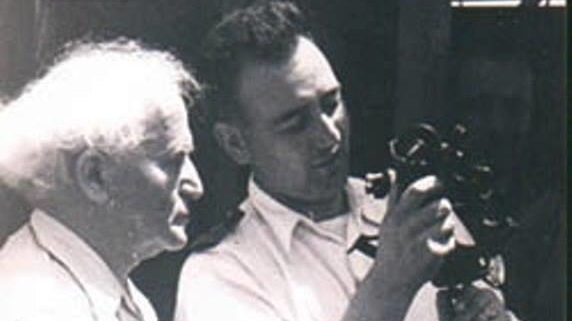Documentary Highlights Americans Who Fought for Israel’s Independence
As the nation prepares to hold virtual Memorial and Independence Day ceremonies, Toldot Yisrael releases special programming on volunteers from overseas
With countrywide lockdowns in place, Israelis will for the first time mark Memorial Day and celebrate Independence Day at home and away from friends and relatives.
The Israeli government has put in place a number of measures aimed at ensuring social distancing and preventing the spread of the coronavirus for the back-to-back holidays. On Memorial Day, Israelis are barred from visiting cemeteries and memorial sites. On Independence Day, they will not be allowed to leave home except for essential services or medicine. Buying food will not be permitted, and public transportation will be halted.
A wide variety of virtual events will be broadcast online to ensure that those stuck indoors can still mark Yom HaZikaron (Memorial Day) and celebrate Yom Haatzmaut (Independence Day).
In cooperation with the Rabbinical Council of America, the Jerusalem-based nonprofit organization Toldot Yisrael has released a special one-hour program for both holidays.
The program, “From Remembrance to Independence: Behind the Scenes of Israel’s Founding,” highlights the American contribution to the state’s creation and is available online.
“We actually created a program because we wanted to make sure that people still had the opportunity to celebrate,” Aryeh Halivni, founder and executive director of Toldot Yisrael, told The Media Line. “Someone who is on their own can watch this video, or schools and synagogues can send it out and say that ‘we’re going to watch this together as a community.’”
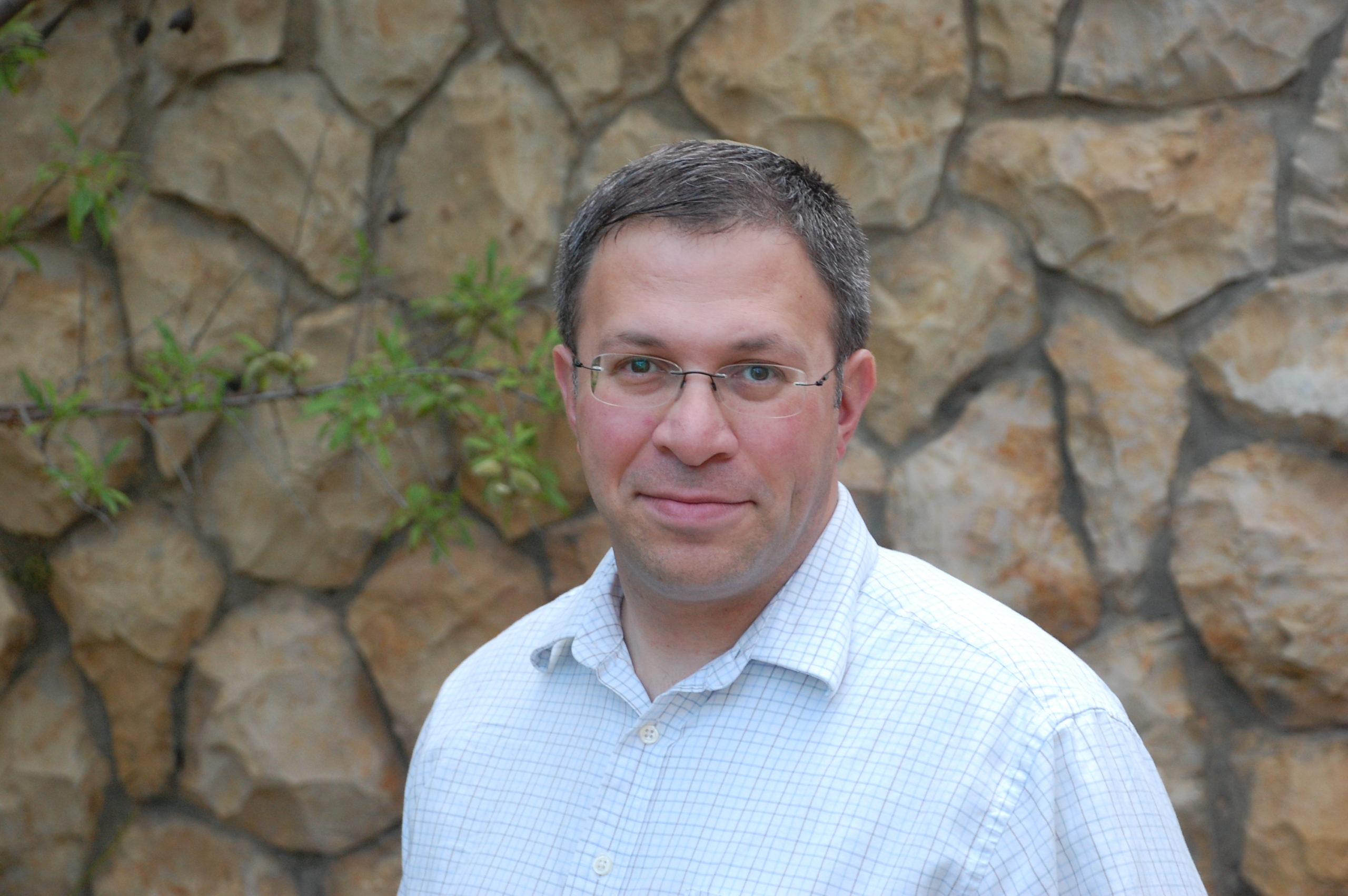
Aryeh Halivni, founder and executive director of Toldot Yisrael. (Courtesy)
Featuring eyewitness accounts relating to Israel’s founding, the video also includes historical footage and inspiring messages from Israeli and American Jewish community leaders, including late Israeli President Shimon Peres and Rabbi Shmuel Goldin.
But the stars of the show are undoubtedly the overseas volunteers, or “machalniks,” who present compelling testimonies about the 1947-1948 civil war, which followed the UN decision to divide the area into a Jewish and an Arab state, and Israel’s subsequent War of Independence.
“The powerful pairing of the solemnity of Yom HaZikaron with the joy of Yom Haatzmaut [Independence Day] follows a long Jewish tradition,” Halivni says at the beginning of the program. “We observe the Fast of Esther before Purim and the Fast of the Firstborn precedes Pesach. The elements of sadness and struggle are thus linked to our triumphs, victories and celebrations.”
Toldot Yisrael has spent past 12 years documenting firsthand accounts of people involved in the state’s founding. This archive, housed in Israel’s National Library, so far includes more than 5,000 hours of footage and 1,200 interviews.
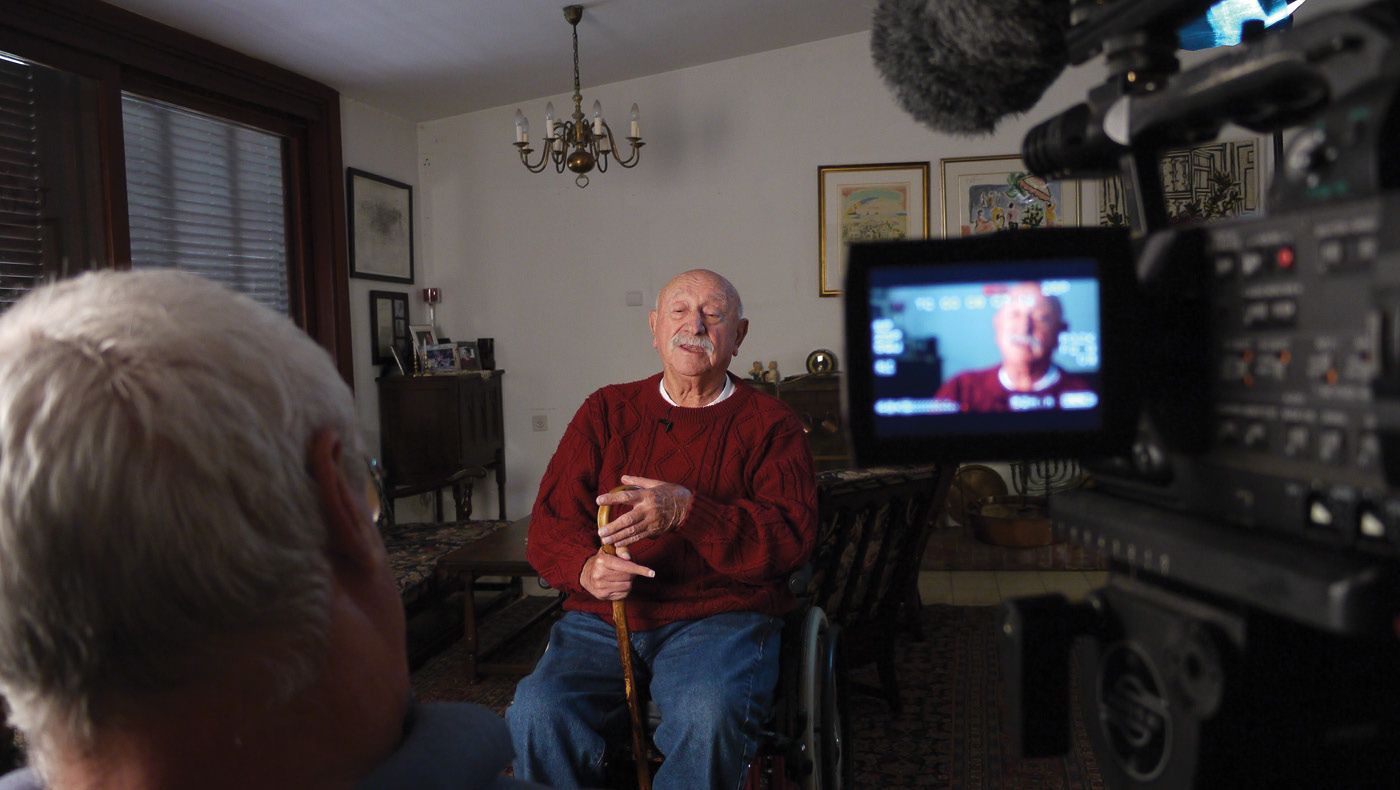
Shmuel Haram tells Modi Snir about the last days in Atarot before the founding of the state. (Peleg Levy)
“It will be accessible for people to use for academic research, educational programming and documentary films,” said Halivni, who is originally from Cleveland. He added that he came up with the idea after seeing film director Steven Spielberg carry out a similar project to collect Holocaust survivors’ testimonies.
“From Remembrance to Independence: Behind the Scenes of Israel’s Founding” recounts the battles instrumental in determining the War of Independence’s outcome and spotlights the young Americans and others who joined the Haganah, a paramilitary organization that became the core of the Israel Defense Forces.
In the program, late Israeli President Shimon Peres describes the “immense” contribution of overseas volunteers, saying they risked everything to help make Israel a reality. About 4,000 volunteers from all over the world fought in the 1948 Arab-Israeli War, and 123 were killed in battle.
“After the United Nations resolution in 1947, we were alone,” Peres said. “We were attacked by seven armies; we didn’t yet have an army. All the odds were against us.”
One of the “machalniks” in the video is Zipporah Porath, a New Yorker who received a scholarship to the Hebrew University of Jerusalem in 1947. This enabled her to receive a rare entry visa to British Mandatory Palestine. She departed from New York by ship and arrived in Haifa later that year.
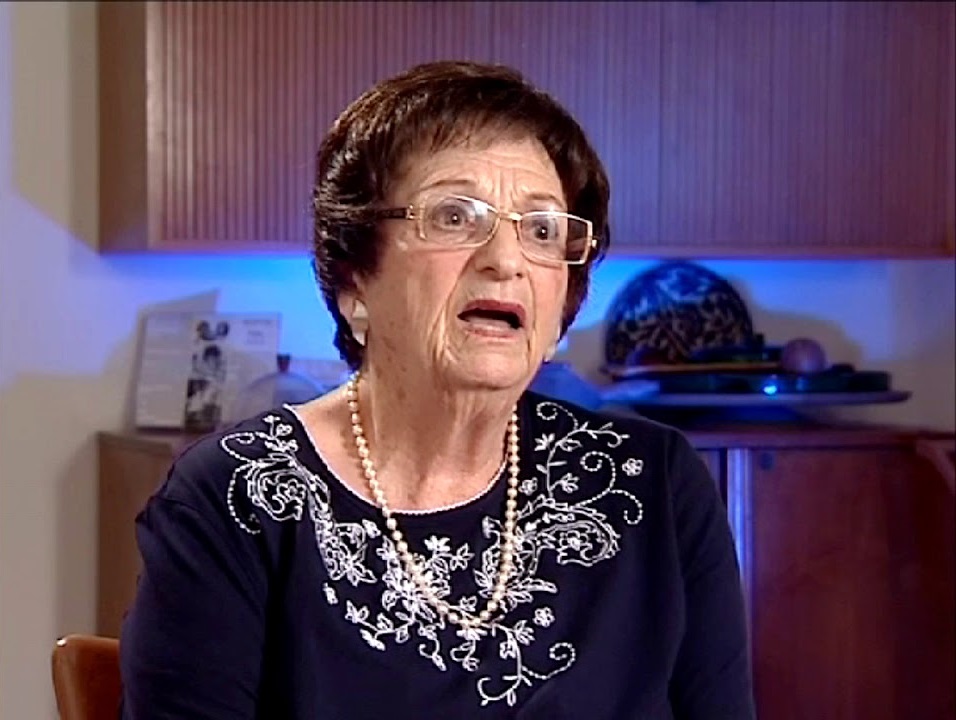
Screenshot of Zipporah Porath taken from Toldot Yisrael video. (Courtesy)
The daughter of a prominent Zionist educator in America, Porath was a Haganah nurse during the War of Independence and was caught up in the siege of Jerusalem.
“It wasn’t two days after the state came into being that we were there with a war in front of us,” Porath told The Media Line. “You don’t feel it until it’s all over. That’s why I’m very fortunate because I was a journalism major at school, and I was recording everything that was happening to me each day.”
Now 96, Porath lives in Ganei Tikva, a town near Tel Aviv. Over the decades, she has worked as a freelance editor, translator and publications production consultant. She has two sons and four grandchildren.
“I walked around with a typewriter, and as a result, I really captured everything that happened,” she said. “From that, I produced a book.”
Porath captured the events of 1947-1948 in letters she wrote to her family, which vividly describe her impressions of historic events as they occurred. Decades later, she compiled her letters and turned them into a book titled Letters From Jerusalem 1947-1948 (2015: Porath Publishers).
In the book, Porath tells how she got caught up in the whirlwind of Israeli history, not expecting her year abroad to be so fateful.
On November 29, 1947, the United Nations voted in favor of the Partition Plan for Palestine, essentially outlining a progressive withdrawal of British forces and delineating the initial boundaries between prospective Jewish and Arab states, with Jerusalem getting special international status.
“Jerusalem went wild with joy the day the UN voted approval of the Partition Plan,” Porath writes. “And wonder of wonders, I was where it was all happening!”
The author describes walking around Jerusalem in a semi-daze in crowds of happy, ecstatic Jews singing and dancing as she made her way to celebrate the UN decision with friends at The Palestine Post (later renamed The Jerusalem Post).
“Another round of drinks and embraces and crazy dances while we waited for the historic First Edition to come off the presses,” she writes. “At 4:30 in the morning, flushed with excitement, ignoring the wet ink, we passed our copies around for everyone to autograph including an English Tommy who wandered in for a drink.”
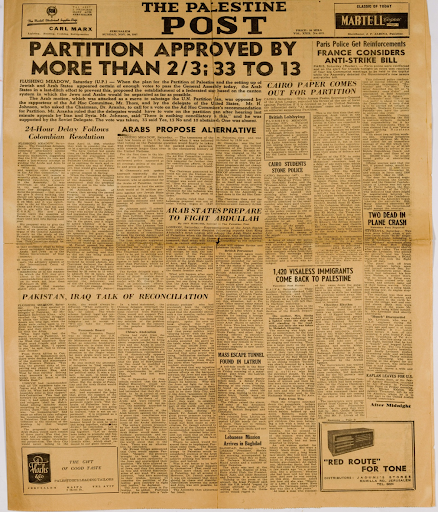
A scan of the Palestine Post edition for November 30, 1947, a day after the UN voted in favor of the Partition Plan. (Courtesy Center for Online Judaic Studies)
While the Jewish Agency for Palestine accepted the UN plan, Arab leaders and governments immediately rejected it, leading to the outbreak of the 1947-1948 civil war and thousands of casualties.
On May 14, 1948, shortly before the British Mandate was set to expire, David Ben-Gurion formally proclaimed the establishment of the State of Israel in the Tel Aviv Museum of Art hall.
At the time, the British were withdrawing from the area and the Haganah was desperately trying to take over their strongholds before Arab fighters managed to do so.
In her book, Porath said she was stuck in Jerusalem and initially unaware of the historic declaration because her electricity had been cut off. Writing from Haganah headquarters in Deir Yassin, an Arab village later incorporated into Jerusalem, she writes:
“It’s the most incongruous and inexplicable feeling. I’m sitting on the mukhtar’s [head man’s] bed in Haganah headquarters in Deir Yassin and, along with our soldiers, listening all hearts and ears to the proceedings at the UN Security Council over a broken down battery radio – trying to find out who will recognize our new state.”
Following these events, the author decided to stay in Israel permanently.
Each year, Israel holds a special ceremony for the overseas volunteers who fought and died during the War of Independence. Speaking to The Media Line, Porath said that while she was normally responsible for reading aloud the names of those who perished, this year she was unsure that any programming would be taking place for the “machalniks” because of the pandemic.
“I keep thinking: What a crazy time, I don’t know how we got into this mess,” she said.

